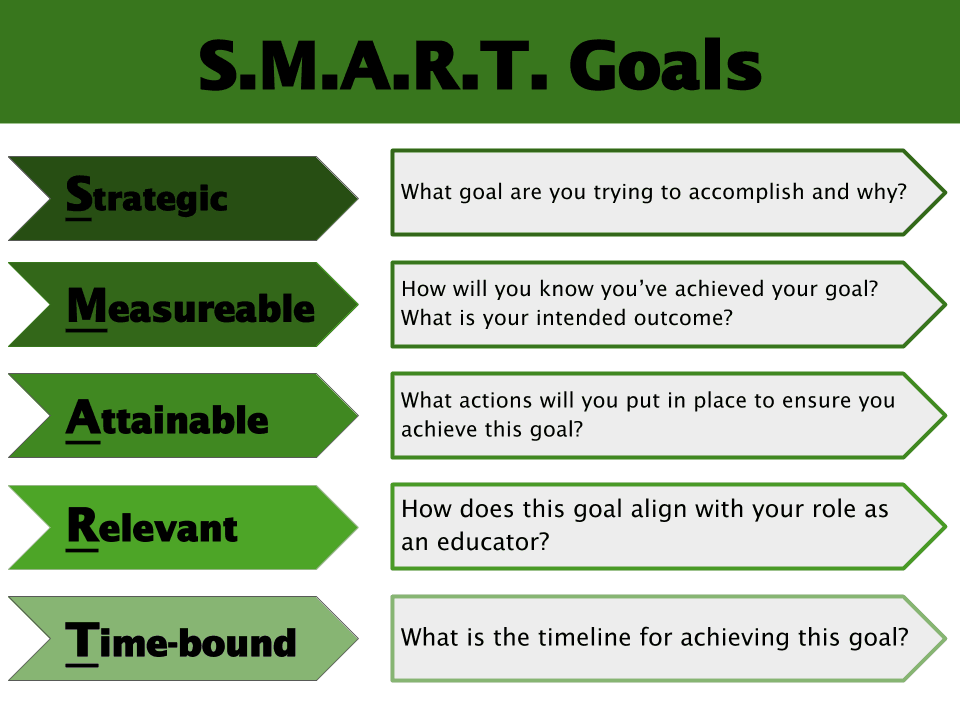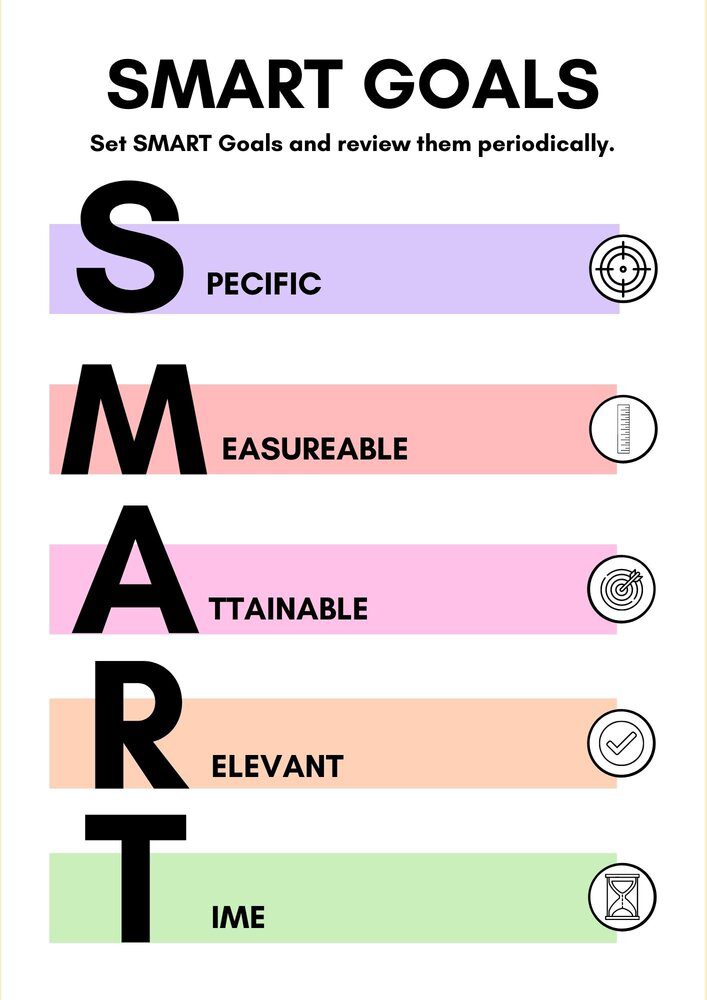There are no unrealistic goals; there are only unrealistic deadlines
S.M.A.R.T is a mnemonic acronym for goal setting. The letters stand for Specific Measurable Achievable Realistic and Time-bound. One of the great tools for achieving your goal is to make it SMART. A goal is a dream with a deadline. There are no impossible goals, what we have are unrealistic timelines and expectations. The human mind is the most powerful force in the universe. As author Napoleon Hill noted in his book, Think and Grow Rich “Whatever Your Mind Can Conceive and Believe, It Can Achieve.”
All men dream; but not equally. Those who dream by night in the dusty recesses of their minds Awake to find that it was vanity; But the dreamers of day are dangerous men. That they may act their dreams with open eyes to make it possible. – T. E.Lawrence
In a 1981 November Issue of Management Review, consultant and former director of corporate planning for Washington Water Power Company, George T. Doran published a paper titled “There’s a S.M.A.R.T way to write Management’s Goals and Objectives“. In the paper, Doran describes the difference between goals and objectives, and he introduced the SMART Acronym. Doran emphasized the need to focus on the action instead of mere quantification. He writes:
Goals vs Objectives
In some cases, goals are short-term and objectives are long-term. In others, the opposite is true. To other organizations, goals and objectives are synonymous. Time should not be wasted in the debate over these terms. The important consideration is not to have the label get in the way of effective communication.
- Goals represent unique executive beliefs and philosophies. They are usually of a form that is continuous and long-term.
- Objectives, on the other hand, give quantitative support and expression to management’s beliefs.
“The establishment of objectives and the development of their respective action plans are the most critical steps in a company’s management process.”
How to write objectives
The critical question then becomes “How do you write meaningful objectives?”-that is, frame a statement of results to be achieved. Dorna suggested using SMART for setting organizational goals and objectives, he stated:
Let me suggest, therefore, that when it comes to writing effective objectives, corporate officers, managers, and supervisors just have to think of the acronym SMART.
Ideally speaking, each corporate, department, and section objective should be:
- Specific-target a specific area for improvement.
- Measurable-quantify or at least suggest an indicator of progress.
- Assignable-specify who will do it.
- Realistic-state what results can realistically be achieved, given available resources.
- Time-related-specify when the result(s) can be achieved.
It should also be understood that the suggested acronym doesn’t mean that every objective written will have all five criteria. However, the closer we get to the SMART criteria as a guideline, the smarter our objectives will be.

Setting a SMART Goal: The Key to achieving your DREAMS.
Whether it is reading more books, losing weight, skydiving, learning a new skill, saving, writing, or running a marathon. The key to achieving any worthwhile goal is to make your goals: Specific, Measurable, Achievable, Realistic, and Time-bound. At the start of the year, we set new year resolutions with much enthusiasm but as the day goes by, we relent on achieving the goals. The beginning of most goals is set with enthusiasm but the middle is usually messy.
Whatever would go wrong would eventually go wrong. The hallmark of successful people is that they keep showing up day in day out. Even when they don’t feel like it, they are the first in the gym and last to leave the gym, studio, workout session, training, practice. They understand that “We get rewarded in public for what we diligently practice in private”.

Setting SMARTER Goals
New York Times Bestselling Author and Speaker Michael Hyatt describes a SMARTER system for setting and achieving goals based on the SMART acronym, in his 2018 book: Your Best Year Ever: A 5-Step Plan for Achieving Your Most Important Goals. The SMARTER system is based on insights from the best goal-achievement research available and are designed to drive results.

Hyatt writes:
We can make our goals more attainable by ensuring they check the right boxes. Write goals that are specific, measurable, actionable, risky, time-keyed, exciting, and relevant.
Attribute 1: Specific
The first attribute of SMARTER goals is that they’re specific. Focus is power. You can drive the same amount of water through two pipes and create greater force in one of them just by reducing its diameter. That’s similar to what happens when we narrow our goals. What the studies show is that the tougher and more specific the goal, the more likely we are to engage our focus, creativity, intellect, and persistence. Vague goals don’t really inspire us. And it’s hard to know where to put what little effort and creativity we are willing to invest.
Attribute 2: Measurable
The second attribute of SMARTER goals is that they are measurable. In other words, they have built-in criteria you can measure yourself against. This is important for two reasons. The first is the most obvious. How do you know that you’ve reached the goal? It’s not very helpful or inspiring to say that you want to make more money this year than last. How much more? There’s a big difference between a small cost of living raise and driving your commissions up 30 percent. Same with getting fit. Saying you want to exercise more often doesn’t do much. It’s not objective. Saying you plan to go to the gym four days a week is different. When the goal is measurable, we know the criteria for success.
Attribute 3: Actionable
The third attribute of SMARTER goals is that they’re actionable. Goals are fundamentally about what you’re going to do. As a result, it’s essential to get clear on the primary action when formulating your goals. How? It may sound simplistic, but I find it’s best to use a strong verb to prompt the action you want to take. You don’t want something like am, or be, or have. You want a verb like run, finish, or eliminate.
Attribute 4: Risky
The fourth attribute of SMARTER goals is that they’re a bit risky. Hear me out. Normally we talk about setting goals that are realistic. That’s usually what the R in SMART refers to. But if we start by asking what’s realistic, we’re likely to set the bar too low.
Attribute 5: Time-keyed
The fifth attribute of SMARTER goals is that they’re time-keyed. This could be a deadline, frequency, or time trigger. For example, if I just had the goal “Read more,” it’s missing a sense of urgency. It could happen over the next ten years. It could happen over the next twenty years. Even if I assume it’s a New Year’s resolution so it means sometime this year, it’s still just out there somewhere. I can put it off and stop thinking about it. But when I say I want to read two books each month, I’ve not only created a challenge but also focus. Deadlines demand attention and spur action. I’d better get in motion because the clock is ticking.
Attribute 6: Exciting
The sixth attribute of SMARTER goals is that they’re exciting. They inspire you, in other words. Researchers say that we stand a better chance of reaching our goals if we are internally motivated to do so. External motivations might work for a while, but if we’re not getting something intrinsic from the goal, we’ll lose interest.
Go with what excites you. If you don’t find your goals personally compelling, you won’t have the motivation to push through when things get tough or tedious.
Attribute 7: Relevant
Effective goals are relevant to your life. This is about alignment, and it comes at the end of the list because it’s a good way to gut-check your goals before committing to them.
If we’re going to succeed, we need goals that align with the legitimate demands and needs of our lives.
Talk they say is cheap, anyone can say they want to climb Mount Everest but the people that eventually achieve their goals are those that consistently show up daily through practice and execution. You do not have to be great to start but you have to start to be great. Every multinational started with a simple idea, every best-selling author started with a single word, everyone starts somewhere but you would set yourself up for success by setting SMART goals and executing relentlessly.
A good plan violently executed now is better than a perfect plan executed next week. George S. Patton
All the Best in your quest to get Better. Don’t Settle: Live with Passion.



1 Comment
Pingback: The Messy Middle | Lanre Dahunsi